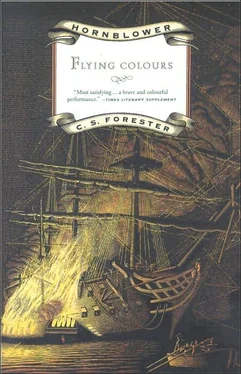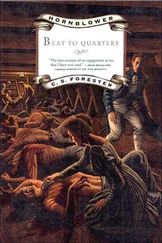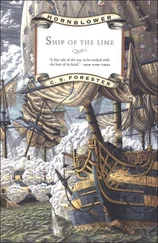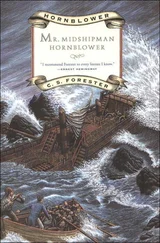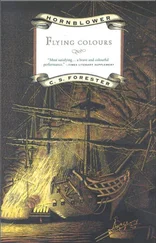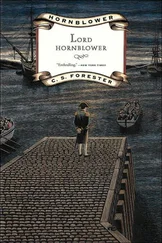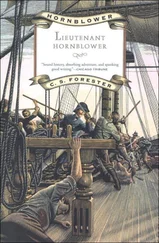Cecil Forester - Flying Colours
Здесь есть возможность читать онлайн «Cecil Forester - Flying Colours» весь текст электронной книги совершенно бесплатно (целиком полную версию без сокращений). В некоторых случаях можно слушать аудио, скачать через торрент в формате fb2 и присутствует краткое содержание. Год выпуска: 1989, ISBN: 1989, Издательство: Back Bay Books, Жанр: Исторические приключения, Путешествия и география, Морские приключения, на английском языке. Описание произведения, (предисловие) а так же отзывы посетителей доступны на портале библиотеки ЛибКат.
- Название:Flying Colours
- Автор:
- Издательство:Back Bay Books
- Жанр:
- Год:1989
- ISBN:0316289396
- Рейтинг книги:5 / 5. Голосов: 1
-
Избранное:Добавить в избранное
- Отзывы:
-
Ваша оценка:
- 100
- 1
- 2
- 3
- 4
- 5
Flying Colours: краткое содержание, описание и аннотация
Предлагаем к чтению аннотацию, описание, краткое содержание или предисловие (зависит от того, что написал сам автор книги «Flying Colours»). Если вы не нашли необходимую информацию о книге — напишите в комментариях, мы постараемся отыскать её.
Flying Colours — читать онлайн бесплатно полную книгу (весь текст) целиком
Ниже представлен текст книги, разбитый по страницам. Система сохранения места последней прочитанной страницы, позволяет с удобством читать онлайн бесплатно книгу «Flying Colours», без необходимости каждый раз заново искать на чём Вы остановились. Поставьте закладку, и сможете в любой момент перейти на страницу, на которой закончили чтение.
Интервал:
Закладка:
“What d’you make of it, Brown?”
“I thought it was a ship, sir, when I first saw it, but in this haze, sir—”
There was a faint chance she might be a French ship of war—it was about as likely as to find the king unguarded when leading from a suit of four to an ace. Much the most likely chance was that she was an English ship of war, and the next most likely that she was a merchantman. The safest course was to creep down upon her from the windward, because the cutter, lying nearer the wind than any square-rigged ship could do, could escape if necessary the way she came, trusting to the mist and darkness and surprise to avoid being disabled before she got out of range.
“Mr. Bush, I fancy there’s a sail to leeward. Put the cutter before the wind and run down to her, if you please. Be ready to go about if I give the word. Jib-sheet, Brown.”
Hornblower’s head was clear again now, in the face of a possible emergency. He regretted the quickening of his pulse—uncertainty always had that effect. The cutter steadied upon her new course, creeping before the wind over the misty water, mainsail boom far out to port. Hornblower experienced a moment’s doubt in case Bush was sailing her by the lee, but he would not allow himself to call a warning—he knew he could trust a sailor of Bush’s ability not to risk a gibe in an emergency of this sort. He strained his eyes through the darkness; the mist was patchy, coming and going as he looked, but that was a ship without any doubt. She was under topsails alone—that made it almost certain that she was an English ship of war, one of the fleet which maintained unceasing watch over Brest. Another patch of mist obscured her again, and by the time they had run through it she was appreciably nearer, and dawn was at hand—her sails were faint grey in the growing light. Now they were close upon her.
Suddenly the stillness was rent by a hail, high-pitched, penetrating, its purity of quality almost unspoilt by the speaking trumpet—the voice which uttered it was trained in clarity in Atlantic gales.
“Cutter ahoy! What cutter’s that?”
At the sound of the English speech Hornblower relaxed. There was no need now to go about, to claw to windward, to seek shelter in the mist. But on the other hand all the unpleasantness of the future which he had been visualizing were certain now. He swallowed hard, words failing him for the moment.
“What cutter’s that?” repeated the hail, impatiently.
Unpleasant the future might be; he would fly his colours to the last, and if his career were ending, he would end it with a joke.
“His Britannic Majesty’s armed cutter Witch of Endor, Captain Horatio Hornblower. What ship’s that?”
“ Triumph, Captain Sir Thomas Hardy— what did you say that cutter was?”
Hornblower grinned to himself. The officer of the watch in the strange sail had begun his reply automatically; it was only after he had stated the names of his ship and captain that it had suddenly dawned upon him that the cutter’s statement was quite incredible. The Witch of Endor had been a prize to the French for nearly a year, and Captain Horatio Hornblower had been dead six months.
Hornblower repeated what he had said before; both Bush and Brown were chuckling audibly at a joke which appealed to them forcibly indeed.
“Come under my lee, and no tricks, or I’ll sink you,” hailed the voice.
From the cutter they could hear the guns being run out in the Triumph ; Hornblower could picture the bustle on board, hands being turned up, the captain being called—Sir Thomas Hardy must be Nelson’s late flag captain at Trafalgar, two years Hornblower’s senior in the captains’ list. Hornblower had known him as a lieutenant, although since then their paths had hardly crossed. Bush eased the cutter under the stern of the two-decker, and brought her to the wind under her lee. Dawn was coming up fast now, and they could see the details of the ship, as she lay hove to, rolling in the swell, and a long shuddering sigh burst from Hornblower’s breast. The sturdy beauty of the ship, the two yellow streaks along her sides, checkered with black gunports, the pendant at the main, the hands on the deck, the red coats of the marines, the boatswain’s voice roaring at dilatory seamen—all the familiar sights and sounds of the Navy in which he had grown up moved him inexpressibly at this moment, the end of his long captivity and flight.
The Triumph had launched a boat, which came dancing rapidly over to them, and a young midshipman swung himself dexterously on board, dirk at his hip, arrogant suspicion on his face, four seamen at his back with pistols and cutlasses.
“What’s all this?” demanded the midshipman. His glance swept the cutter’s deck, observing the sleepy prisoners rubbing their eyes, the wooden-legged civilian at the tiller, the bare-headed man in a King’s coat awaiting him.
“You call me ‘sir’,” barked Hornblower, as he had done to midshipmen ever since he became a lieutenant.
The midshipman eyed the gold laced coat—undoubtedly it was trimmed in the fashion of the coat of a captain of more than three years’ seniority, and the man who wore it carried himself as though he expected deference.
“Yes, sir,” said the midshipman, a little abashed.
“That is Lieutenant Bush at the tiller. You will remain here with these men under his orders, while I go to interview your captain.”
“Aye aye, sir,” said the midshipman, stiffening to attention.
The boat bore Hornblower to the Triumph’s side; the coxswain made the four-finger gesture which indicated the arrival of a captain, but marines and side-boys were not in attendance as Hornblower went up the side—the Navy could not risk wasting her cherished compliments on possible impostors. But Hardy was there on deck, his huge bulk towering over everyone round him; Hornblower saw the expression of his beefy face alter as he saw him.
“Good God, it’s Hornblower all right,” said Hardy, striding forward, with his hand outstretched. “Welcome back, sir. How do you come here, sir? How did you retake the Witch ? How—”
What Hardy wanted to say was “How have you risen from the grave?” but such a question seemed to savour of impoliteness. Hornblower shook hands, and trod gratefully the quarterdeck of a ship of the line once more. His heart was too full for speech, or his brain was too numb with fatigue, and he could make no reply to Hardy’s questioning.
“Come below to my cabin,” said Hardy, kindly—phlegmatic though he was, he still could just appreciate the other’s difficulty.
There was more ease in the cabin, sitting on the cushioned locker under the portrait of Nelson that hung on the bulkhead, and with the timbers groaning faintly all round, and the blue sea visible through the great stern window. Hornblower told a little of what happened to him—not much, and not in detail; only half a dozen brief sentences, for Hardy was not a man with much use for words. He listened with attention, pulling at his whiskers, and nodding at each point.
“There was a whole Gazette ,” he remarked, “about the attack in Rosas Bay. They brought Leighton’s body back for burial in St. Paul’s.”
The cabin swam round Hornblower; Hardy’s homely face and magnificent whiskers vanished in a mist.
“He was killed, then?” Hornblower asked.
“He died of his wounds at Gibraltar.”
So Barbara was a widow—had been one for six months now.
“Have you heard anything of my wife?” asked Hornblower. The question was a natural one to Hardy, little use though he himself had for women; and he could see no connexion between it and the preceding conversation.
“I remember reading that she was awarded a Civil List pension by the government when the news of—of your death arrived.”
Читать дальшеИнтервал:
Закладка:
Похожие книги на «Flying Colours»
Представляем Вашему вниманию похожие книги на «Flying Colours» списком для выбора. Мы отобрали схожую по названию и смыслу литературу в надежде предоставить читателям больше вариантов отыскать новые, интересные, ещё непрочитанные произведения.
Обсуждение, отзывы о книге «Flying Colours» и просто собственные мнения читателей. Оставьте ваши комментарии, напишите, что Вы думаете о произведении, его смысле или главных героях. Укажите что конкретно понравилось, а что нет, и почему Вы так считаете.
